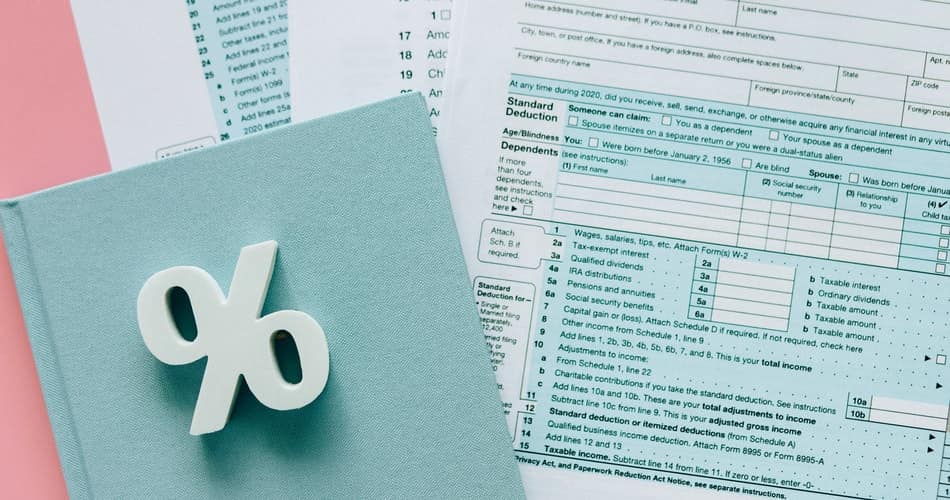Bonuses give employees job satisfaction and motivation to work harder. Although a bonus is undoubtedly cherished by employees, the enthusiasm does dim when they realize the amount of income tax that has to be paid on it.
Any bonus received during a year, is fully taxable the same year when the bonus is received. But there are some ways to defer this tax payment and even reduce the burden.
There are several ways to reduce and manage this bonus tax rate.
The two most important questions that arise here are:
- How much are bonuses taxed?
- Are bonuses taxed higher?
These questions will be answered in this article.
One of the most common ways is to have the right kind of investment to pre-empt a bonus that is going to come during the year. The employer may be required to withhold taxes to avoid paying tax in the future from a bonus. But employees must have adequate knowledge about investments and practice ways to optimize their taxes.
To provide you with a detailed explanation of ways to minimize or save tax on bonuses, this article has laid down some essential points to understand the tax rate on bonuses for 2021.
How Much are Bonuses Taxed?
The bonus at the end of the year is a reward for a job well done. But there is a part that the employee will have to pay as tax. The tax rate is dependant on two factors:
- The Employee’s Total Income
- The Tax Rate
Although there is no explicit federal tax on bonuses are taxed differently from your regular income. The IRS doesn’t take your bonus as regular compensation instead it is treated as a supplemental wage.
Your bonus, or any compensation that you receive, is considered an income of the business. Whether it is property, money, or service, it can only differ if the law says otherwise; income is always taxable. It doesn’t matter whether your bonus is cash or non-cash it is always taxable. If your bonus comes in the form of services or goods, you will have to include the market value of that in your income.
However, there is an exception for employee achievement awards given to employees by the employer. To be precise, if the employer grants you an achievement award that would exclude federal tax, only if:
- The award is personal property and tangible.
- The employer’s cost should be equal to the amount excluded
- The award can’t be more than $1600 in a year, and this doesn’t include awards less than $400
- The employer must make the award clear and should be as part of a meaningful presentation
- Length of service must be beyond five years and more
- 10% or less than 10% of employees should receive this award
- Manager, administrator, clerical employee, or another professional employee can’t receive the achievement award
What Taxes Do You Have to Pay?
Social security, federal income tax, unemployment taxes, and Medicare tax are all payable on your bonus. Any state tax is also payable on the bonus amount. Only in the state where your bonus meets the rules that are excluded from taxable income will the rest of all the above taxes be paid by the employer. Both employers and employees must do their due diligence about what slab bonuses are taxed at.
From 2020 the tax rate on bonuses is as follows:
| Social Security Tax Rate | 12.4% | 6.2% to be paid by the employer and the rest by the employee. |
| Medicare Tax Rate | 2.9% | 1.45% to be paid by the employee and the rest by the employer. |
Points to note:
- Under the Social security tax rate, the tax is paid on up to $137,700 of wages
- Any earnings in social security wage which are in excess shouldn’t be subject to tax
- Under Medicare, you pay tax on your wages; there is no wage base limit on it
How Are Bonuses Taxed?
Withholdings of federal income tax for complementary wages are determined by whether the employer pays you the bonus independently from regular wages. It also depends on whether the employer has withheld taxes from the paycheck you receive through the financial year.
If your bonus is equal to or less than $1 million, your employer offers a bonus to you into a regular paycheck, not differentiating wages from the actual bonus payment. In this case, your employer must hold the federal tax as if the total amount was a regular payment. In this situation, the bonus tax rate would be paid on your regular salary.
The rules differ when the employer specifies the difference between bonus and wages money on a regular paycheck or when employers pay the bonus to the employee separately from the paycheck:
- If the employer has withdrawn income tax from wages through the financial year, that can opt to the rate for the bonus of 22% and deal with taxes accordingly.
- Also, the employer can add the bonus to your regular wages. Then calculate the income tax on total payment, subtracting the tax withheld for regular wages.
The second method is used per IRS to calculate the bonus tax rate only when the employer didn’t withhold tax from your regular wages through the financial year.
The method of calculating your employer chooses determines whether your bonus is taxable at a high rate or lower than the one on your salary. The point to be noted here is that your bonus will be taxed at 22% the higher the tax bracket. The employer must be careful on the calculation bonus after-tax to use and be aware of how bonuses are taxed.
How to Save or Minimize Bonus Tax?
It’s entirely up to the employer to calculate or handle your bonus tax rate. All the employee can do is to find a path that minimizes their tax rate for saving the bonus earned. Also, it is essential to know that Medicare and federal unemployment tax will have to be paid by the employee, no matter how the employer manages the bonus.
Let’s go ahead and have a look at some of the options that we have on how to avoid taxes on a bonus check:
Retirement Contribution
It is considered one of the most efficient ways to save or minimize tax on your bonus. Under this, the employee’s gross income is deferred to the retirement account with the contributions. This account is popularly known as an Individual Retirement account or a 401 (k) account.
To be clear, in this account, the amount you donate limits the tax you owe in the future. These limitations are different with every account. The maximum contribution for IRA accounts in 2021 is $19,500. For those over the age of 50, the catch-up amount is limited to $6,500 in 2021.

Donations
You can save tax by donating. This is one of the ways which is different from investment schemes. If anyone contributes to charity for any cause, the government does not tax that amount. Even if one donates to a non-governmental trust, then they get a 60% deduction on taxation for that figure. Often larger operations will contribute to charity to save taxes and improve their public image.
As mentioned above, the employee can declare their charitable contributions of up to 60% of their total income in a single financial year. Before giving this option to employees, do make sure to collate a list of all charitable organizations that are eligible to receive tax-free donations. This will ensure that employees don’t face any issues while claiming the education. You can also guide employees to the IRS website for a list of eligible charitable groups.
Health Insurance
Other than cash, any payment made for health insurance in the year 2021 helps save up to $3,600 for individuals and $ 7,000 for families. Employees can save a good amount under health insurance. They can save these health deducations in a special HSA account which is a tax-advantaged account. These are annual premiums and help bring down the tax liability for employees.
Offset the Bonus Tax
It is simple. The deductions allow the employee to pay less tax on their taxable income. It will certainly reduce the tax liability. For instance, if you get a $4,000 bonus at the workplace and can claim a $4,000 deduction, that means you essentially would cancel out the tax impact of that income. In simpler words, this will help you to earn your entire bonus tax-free effectively.
Defer Compensation
It is one of the ways to save tax, under this you can ask your employer to delay giving you the bonus till a later date. In most cases, taxes on this bonus are deferred until it is paid out. The most common forms of deferred compensation include retirement, pension, and stock-option plans.
The employee can then figure out what is the best time to cash out. In the case of stock options, they can do so once they have some long-term capital gains. The long-term capital gain tax rates are 0%, 15%, and 20%, depending on their income level.
Does Bonus Affect the Tax Bracket?
Under Federal Income tax, the rate of tax is dependent on the income that an employee earns. Countries like the United States have 7 federal income tax rates which are; 10%, 22%, 24%, 12%, 32%, 37% and 35%.
As the income system is very progressive, they may fall into more than one tax bracket, which means that their income would be subject to more than one tax rate. The highest tax rate that applies to their income is the marginal tax rate.
There are is a chance that an employee’s bonus may cause them to slip into the next tax bracket and will increase their marginal tax rate.
For instance, if they are a single taxpayer with annual earnings of $39,400 in 2020, they will fall into the 12% tax bracket. It will cover a range of income from $9,701 to $39,475. In this case, their marginal tax rate would be 12%, and the tax rate would be lower than the 10% rate.
Further, as we see in the case, an employer pays the employee a 5% bonus during a financial year, which would increase the amount to $1,950. It will increase the total income to $40,950. In this case, the marginal tax rate would be 22% as the payer falls into a different tax bracket. This rate will only apply to their income of more than $39,475. It is how the tax bracket changes with the bonus, and the rate of tax also changes.
The more tax liability increases if your income increases. If the company doesn’t withhold enough tax during the year, the employee will have to file tax returns when the time arises. The only way to help an employee reduce this tax bill is by reviewing your W4 withholdings; the IRS suggests people keep checking their withholdings periodically.

Were You able to Find Ways to Minimize the Bonus Tax Rate?
A bonus is a windfall to all employees. Irrespective of whether it’s some extra money or some value in “kind” it is precious. Although employers can’t completely eliminate tax liabilities on these bonuses, they can help employees shield their windfall partially.
Although bonuses aren’t taxed that high in the traditional sense of the term, the tax savings can be helpful. Whether it’s done through additional contributions to an HSA account or a 401(k).
We hope that you were able to find concrete ways to help your employees reduce their bonus tax rate and help them enjoy the full breadth of their bonus.
Do you have any additional ways to save on the taxation on bonuses? We’d love to find out more ways and update this article. Reach out to us @HarmonizeHQ on Twitter and help more employees maximize their bonus payouts.



